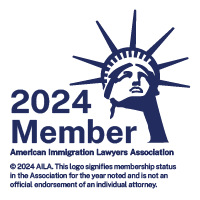The U.S. Supreme Court has once again backed the Trump administration — this time, allowing immigrants to be deported to “third countries” without formal notification or consideration of potential risks.
On Monday, the Supreme Court sided with Trump for the 11th time this year, continuing a string of emergency legal victories as the former president pushes for a return to the White House. In this ruling, the Court authorized the government to remove immigrants to third countries — places where they have no citizenship, no family ties, and no connections — without written notice or an opportunity to challenge potential threats of torture, violence, or persecution.
The case involved four immigrants from Cuba, Honduras, Ecuador, and Guatemala who argued they could not safely return to their home countries. The Department of Homeland Security (DHS) instead attempted to deport them to unrelated third countries — including high-risk regions like Libya and South Sudan, which the U.S. State Department strongly advises Americans to avoid due to armed conflict and crime.

A federal court in Massachusetts had previously blocked such deportations unless specific procedural safeguards were followed:
Written notice in a language the immigrant could understand,
Notification sent to their attorney,
A 10-day period to express fear of torture,
If denied, a 15-day window to appeal within the immigration system.
However, on June 23, the Supreme Court overturned these protections, allowing immediate deportations without any of the above measures. Justices Sotomayor, Kagan, and Jackson issued a fierce dissent, calling the decision “a flagrant abuse of power.”
This marks the 11th legal win for the Trump administration this year. Just last month, on May 19, the Court also permitted Trump to end Temporary Protected Status (TPS) for Venezuelan nationals despite ongoing legal challenges.
In San Diego on June 20, World Refugee Day, something remarkable happened: The local immigration court was unexpectedly free of the usual heavy ICE (Immigration and Customs Enforcement) presence.
The reason? A delegation of clergy, led by future bishop Michael Pham — himself a former refugee from Vietnam — visited the court to show solidarity.
According to witnesses, ICE agents visibly stepped aside as soon as they saw the group of priests and faith leaders arrive. One activist described the scene by saying, “It felt like the Red Sea had parted; the hallways were suddenly empty.”
Two asylum hearings scheduled that day were postponed, but the clergy’s presence served as a powerful show of support for asylum seekers. For many, it was a symbolic moment that offered comfort and a sense of community during an otherwise intimidating process.
The action was part of a larger initiative by the Catholic Diocese of San Diego, which encourages clergy to accompany migrants to immigration court hearings to provide moral support and remind everyone of the shared belief in justice and compassion.
